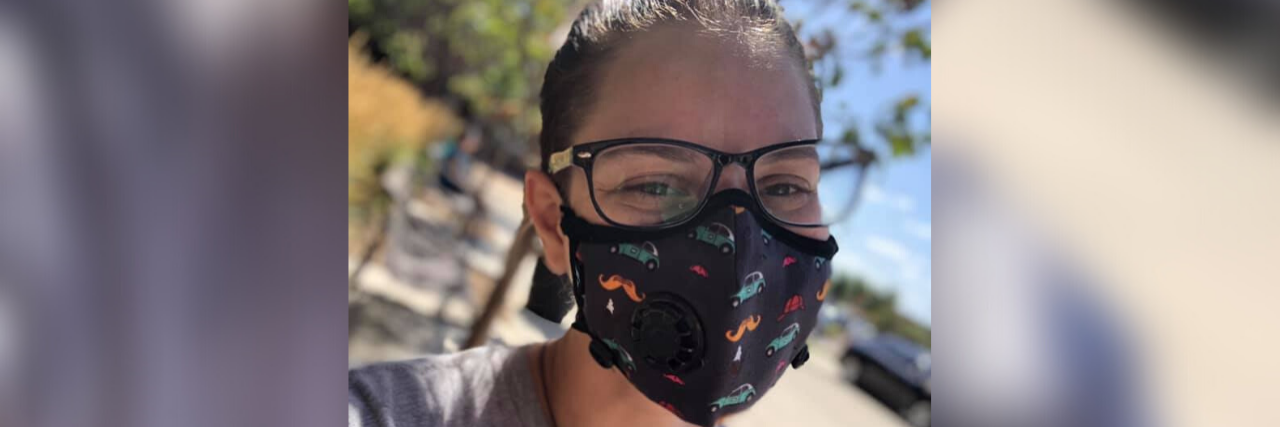When I'm Accused of Faking My Disability as an Ambulatory Wheelchair User
“You must be faking, because I’ve seen you walk.”
“You walk around in the house for periods of time.”
“You didn’t need a chair before.”
I think many ambulatory wheelchair users have heard comments like those at one point or another. Too many people seem to believe the only reason someone needs a wheelchair is from birth or from a spinal cord injury. This is such a false concept, and can contribute to making ambulatory wheelchair users struggle with imposter syndrome even as they’re trying to handle their disability and navigate the world in a new way that can often be scary or overwhelming.
Although I’m adjusting well, I am mourning the loss of my previous self and life, and it took a good while before I was ready to start finding joy in exploring this new body and a new world. And there is nothing wrong with that. A change in level of disability can cause a lot of emotion and mental stress, anxiety, fear and sadness. I had to give up a lot of what made me, me. So it hurts to hear ignorant comments from someone who knows nothing about my conditions or their progression, or the fact that I just can’t hide them anymore, or the fact that I’ve finally gotten brave enough to share these conditions. I shouldn’t have to hide or be ashamed of who I am.
I think that the hardest part of being called a faker is that it came from some of my closest friends — people I loved and spent years busting my butt for, driving all over the country for, and giving my limited money and time. The people I thought I could count on most are the ones who left the fastest, and having to see them around when I am able to venture out hurts. But on the flip side, as my conditions have worsened so that they’re not as invisible anymore, I’ve found out a lot about who my friends really are. I’ve found true sisters in the community.
I was in the hospital for five months. Four people visited me. I was within a mile or two of dozens of my friends. Multiple highly risky surgeries, a 4” clot in my heart that almost killed me, and I didn’t hear from many people. Just a few people, most of whom I barely knew, but they’re the ones that stepped up and kept me smiling and having a reason to fight. in the ICU after my heart surgery, too malnourished to heal per the doctors, facing an emergent procedure to put in surgical feeding tubes, I wanted to give up.
I’d lost everything except for my fiance and I didn’t think I could fight anymore. I had no family, friends had abandoned me, and my service dog had passed away. But that precious tiny group of people, as well as my amazing long-distance sisters from other misters kept me going. And I’m so glad I did, because those friendships have grown and blossomed and I realize now how toxic my old friendships truly were. So maybe it was a good thing in the long run that I’ve been called a faker and lost all my friends, because I gained some of the best in the world.
In the end, it’s not your place to judge someone else’s disability. If you think someone is faking, and they’re your friend, sit down with them. Talk to them. Maybe they were too scared to let things be visible before. Maybe things have progressed. Maybe their doctor changed treatment plans or prescribed new mobility aids. Give them the respect of talking to them before spreading painful and hurtful rumors or suspicions behind their back. Don’t demand their medical records or demand to speak with their specialists. (Yup. That’s happened.)
Friendships wax and wane, and that’s more than fine, but hurting someone deliberately is never OK. If you’re wrong, you’re putting someone already dealing with a huge loss and adjustment through something even worse. Piling that much on is a reason a lot of us struggle even more with the mental aspects of chronic illness and disability.

